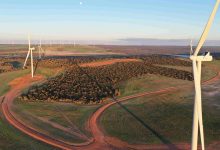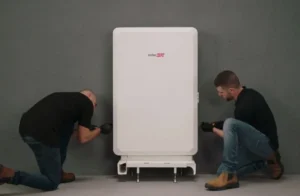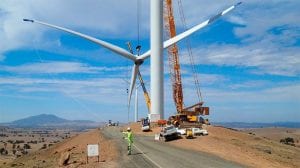With major party leaders set to square off in a key pre-election energy debate on Monday, the clean energy industry has called for them to place clean energy at the centre of their election platforms, even beyond the WA Liberals surprisingly ambitious plan for a zero emissions grid by 2030.
“WA should go hard, go early,” Clean Energy Council chief executive, Kane Thornton, said.
“Several countries around the world, and virtually every state and territory in Australia, have set out ambitions to become clean hydrogen producers. While WA has made good progress, it will need more than small, incremental spending commitments to set itself apart from other local and international investment destinations.”
“The state should commit at least $100 million over the next decade to support the development of a large-scale hydrogen export industry. This investment will in turn help to secure the billions of dollars of new private investment that is seeking a home, and create thousands of new jobs for Western Australians.”
The Clean Energy Council has released a set of recommendations for the major parties on what to include in their election commitments, including an aim to foster the emerging hydrogen industry, to build key refuelling and distribution infrastructure, to invest in industry skills and training and to actively market Western Australia as an ideal host for clean energy investment.
The Conservation Council of Western Australia wants the state to go even further, with a 700 per renewable energy target by 2040, eyeing the growing opportunities for the state to establish itself as a global hub for zero emissions energy exports.
“At times, the environment and climate change have been divisive issues and this has held back progress. Our plan aims to change this by inspiring all West Australians – communities, business and government – to work together to solve the critical challenges of our time,” CCWA director Piers Verstegen said.
“Polling shows that West Australians want strong leadership on climate change and the environment, and political parties that demonstrate this with strong policies will be rewarded at the polls.”
The Climate Council highlighted that the opportunities for Western Australia are not limited to clean energy production, with the state’s resources sector ideally positioned to take advantage of a global boom in demand for the materials used in clean energy technologies, including batteries and electric vehicles.
“Lithium is in demand. Nickel is in demand. Western Australia can cash in on the growing, global demand for rare minerals, as well its endless supply of sun and wind. All Western Australians will benefit from a state government that invests in clean industries that are rapidly growing,” Climate Councillor Greg Bourne said.
The Western Australian Liberals have already come out with a surprisingly ambitious platform, that promises substantial investment in new clean energy projects, and sets deadlines for the closure of the state’s coal fired generators.
Unveiling his party’s ‘New Energy Jobs Plan’, WA Liberal leader Zak Kirkup said the WA Liberals would close all state-government owned coal-fired power stations and invest $3 billion in 1,500MW of new renewable energy projects – both goals by 2025.
“It’s a mega-project, building the largest renewable energy project in Australia’s history, with wind, solar and large-scale batteries that will transform Western Australia’s energy system for the next 50-years and give WA fuel security and energy independence,” Kirkup said.
“This mega-project will provide a meaningful contribution to reaching the global ambition of a clean energy future.”
It’s a bold vision from an opposition leader facing an almost unsurmountable challenge to win government.
The Western Australian state election is set to be held on March 13, with WA Labor leader and premier Mark McGowan holding a commanding position to be re-elected.
WA Labor currently holds a strong majority in the WA parliament, having won a landslide victory at the 2017 state poll.
McGowan is on track to replicate that result, having won praise for the state’s Covid-19 response, with around 80 per cent of WA residents considering the response as having been good, and McGowan consistently ranking as one of Australia’s most popular leaders.
The McGowan government has previously expressed its support for a 50 per cent renewable energy target, but has yet to set one formally. WA Labor is anticipated to release further details about its own election pledges in the energy space ahead of the debate on Monday.










